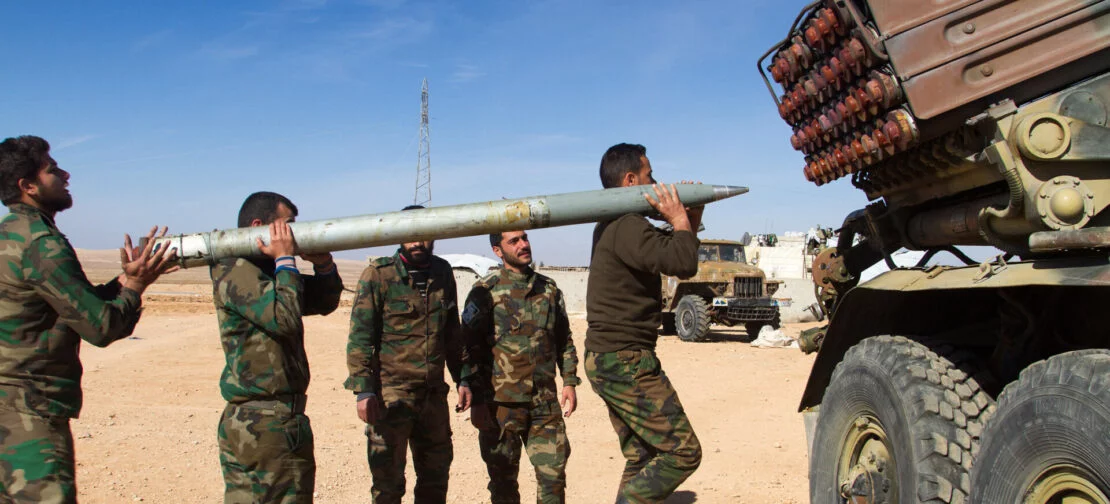Already a subscriber? Make sure to log into your account before viewing this content. You can access your account by hitting the “login” button on the top right corner. Still unable to see the content after signing in? Make sure your card on file is up-to-date.
A top Iranian official has accused the United States and Israel of orchestrating a rebel offensive in Syria, describing it as part of a broader plot to undermine regional stability.
Let’s bring you up to speed: Last week, a major rebel uprising erupted in Syria, led by Hayat Tahrir al-Sham (HTS), a group with ties to Al-Qaeda. This offensive, the largest since 2020, has resulted in significant territorial gains, including the capture of Aleppo, Syria’s second-largest city, and several surrounding towns such as Khan Sheikhun and Maaret al-Numan. HTS and other allied factions have taken dozens of areas with little resistance from government forces, forcing Syrian troops to retreat and establish a defensive line near Hama. HTS, designated a terrorist organization, has deep ties to extremist networks and continues to control significant portions of the Idlib region. Their actions have reignited fears of escalating violence and further destabilization in a country already ravaged by over a decade of war.

What’s going on now: Iranian Foreign Minister Abbas Araghchi has condemned the rebel offensive in Syria, calling it part of a “broader scheme by the Israeli regime and the United States to destabilize the West Asian region.” In a statement, he warned that the “new movements of Takfiri-terrorist groups are part of the plot of the US and the illegitimate Zionist regime.” Araghchi stressed that Iran was committed to keeping Assad in power.

What the US is saying: Shortly after the claims by Iran’s foreign minister, the United States rejected any involvement in the Syrian rebel offensive and called for de-escalation in the conflict. National Security Council spokesman Sean Savett stated, “The United States has nothing to do with this offensive, which is led by Hay’at Tahrir al-Sham (HTS), a designated terrorist organization.” The White House also said that Syria’s reliance on Russia and Iran, as well as its refusal to advance the 2015 UN peace process, created the conditions for the current unrest.
Digging deeper: This all comes as all eyes are on Russia, a key ally of Syrian President Bashar al-Assad. Russia’s close relations with Assad have led to its naval base in Tartus (Syria) and its Khmeimim Air Base to maintain access to the Mediterranean and project power in the region. Russia has historically provided critical military support to Assad, including decisive airstrikes that helped his regime reclaim significant territory during the civil war.
So far, Russian officials have expressed “extreme concern” over the losses faced by its Syrian ally. The Russian Foreign Ministry also said it would “support the sovereignty and territorial integrity of the Syrian Arab Republic.” Reports have circulated that Russia has already carried out some airstrikes on HTS in an effort to slow down their advances.
Casualties: The recent rebel offensive in Syria has resulted in the deaths of over 400 people, including at least 60 civilians, according to the Syrian Observatory for Human Rights. There have already been reports of atrocities, including the abduction of women and other human rights violations, raising alarms about the group’s extremist ideology and links to global terror networks.






